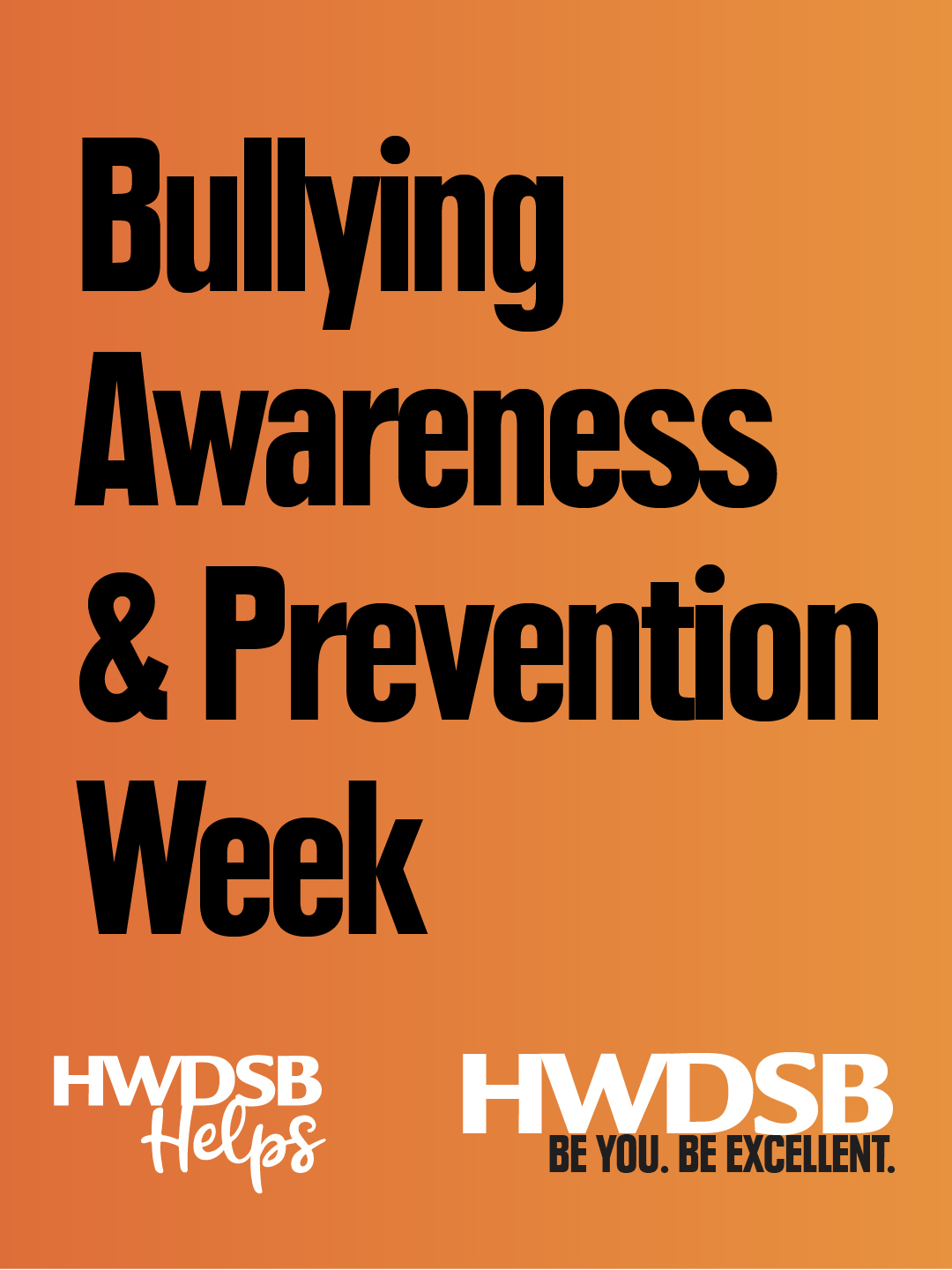
Bullying Awareness and Prevention Week
 As part of our ongoing commitment to fostering safe, caring, and inclusive schools, HWDSB will recognize Bullying Awareness and Prevention Week from November 17 to 21, 2025. Our focus continues year-round on building inclusive school communities where every student feels seen, valued, and supported.
As part of our ongoing commitment to fostering safe, caring, and inclusive schools, HWDSB will recognize Bullying Awareness and Prevention Week from November 17 to 21, 2025. Our focus continues year-round on building inclusive school communities where every student feels seen, valued, and supported.We invite you to explore our Family Toolkit for practical strategies to help you talk with your child, recognize signs of bullying, and work with the school to address concerns. The toolkit also includes resources to support mental health and positive relationships at home and school.
Helpful Resources for Families:
HWDSB Bullying Prevention and Supports
City of Hamilton Parenting and Bullying Supports
Please take some time this week to start a conversation with your child about kindness, inclusion, and what to do if they or someone they know is being bullied. Together, we can ensure every student feels safe and supported
Family Toolkit
What Parents and Caregivers Should Know
Bullying is repeated, intentional behaviour that harms, isolates, or intimidates. It can be physical, verbal, social (exclusion or rumours), or online. Children need to know that when they speak up, they will be believed and supported.
Signs to Watch For
• Avoiding school or social situations
• Unexplained injuries or damaged belongings
• Secretive use of phones or social media
• Changes in mood, sleep, or appetite
• Declining grades or loss of interest in school
Starting the Conversation. Try open questions and calm reassurance.
• “I’ve noticed you seem upset. Can you tell me what’s been going on?”
• “Thank you for telling me. I believe you. You didn’t deserve that. We’ll work on this together.”
• “My child has been experiencing [describe behaviour]. I’d like to understand how the school will support them.”
How Families Can Respond
• Listen and validate your child’s feelings. Stay calm and supportive.
• Document what happened, including times, dates, and screenshots if it’s online.
• Talk to the school starting with the classroom teacher and principal.
• Use HWDSB reporting tools such as the HWDSB Helps app or website.
• Support your child’s well-being with routines, positive connections, and emotion coaching.
Addressing Cyberbullying
• Save messages and screenshots as evidence.
• Do not respond publicly. Block the sender and report the behaviour.
• Review privacy settings on devices and social media accounts.
• If the situation involves threats, stalking, or sexual exploitation, contact the school and Hamilton Police.
When to Seek Additional Help
If you are not satisfied with the school’s response, request meeting notes and timelines for next steps. You can contact the superintendent or HWDSB Safe Schools office for further support. If there is immediate danger, call 911.
Promoting Prevention at Home
• Model respect and empathy in everyday situations.
• Encourage children to stand up for others safely and report concerns.
• Talk about online behaviour and kindness.
• Use resources from SMH-ON and PREVNet for guidance on emotional regulation and healthy relationships
Updated on Friday, November 14, 2025.

